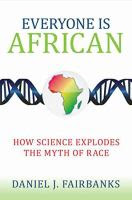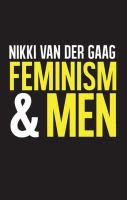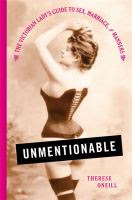As you may have read in my last post there are many ways for classifying a given group of people such as the religion they practise, their sexual orientation, their cultural and societal backgrounds, their politics, their physical characteristics, and their individual practises.
This covers a lot of territory as you can imagine, but is it really necessary to classify people into these groups? Well it's not necessary per say, but humans as a species are for the most part classifiers it is one of the ways we make sense of things, and we've been doing it for a few hundred thousand years or so, so the chances of us being able to break the habit is pretty slim. I say a few hundred thousand because anatomically modern humans first appeared around two hundred thousand years ago. Before this there were other species of primates such as
Australopithecus afarensis (Lucy and her kin) which go back around three million years, and primates themselves go back around sixty-five million years. Now we have no way of knowing whether our predecessors classified things and likely we'll never know, but the chances are pretty good they did even if in only very rudimentary ways. In any case we as modern humans (
Homo sapiens sapiens in case your interested) do classify things, and this tends to create problems (some intentional, and some not) in this little old world of ours.
Now why we classify things is a topic worthy of a lot of study and it has been studied for quite a while, but this blog is not a do it yourself degree in sociology, or psychology, so we'll leave it at that.
As the header for this blog states I'm going to be talking about critical thinking, and classification is one component of this subject. When we think critically we are forced to divide things into the plausible, and the not plausible (to put it very broadly, as there are typically varying degrees of plausibility). But before this is taken the wrong way I must point out that when someone thinks critically this does not mean that they simply take a firm unwavering stance on something, and let the dice fall where they may. This is what differentiates critical thinking from skepticism. Critical thinkers are by nature skeptical, but skeptics in many cases are not critical thinkers as they have already decided what the answer is.
Now there is nothing wrong with being a skeptic, but if you are then you have to be prepared to defend your ideas, as many people will automatically consider you to be against any idea that is somewhat controversial - in other words you become one of those dreaded "debunkers". And once you've been classified as a debunker, then it'll stick with you and will automatically be transferred to pretty much any topic that is even the slightest bit off centre.
It is much better to publicly classify yourself as a critical thinker (at least in my opinion), as in this way you don't automatically have a prejudgement against you. And you can reinforce your case by saying you are willing to entertain the notion that certain phenomena are possible, and then investigate what really is the story.
An example seems to be in order here.
Let's say you encounter a person who says they believe their house is haunted, because they hear footsteps at night.
Now a hardened skeptic would likely dismiss this as total nonsense, and thereby cause the person to not only consider them as being a rude git, but also likely cause the person with the belief to be embarrassed. If this is done enough times then I would assume it could lead to further distress on their part.
But if we look at this same scenario from the point of view of a critical thinker then we get a totally different outcome. The critical thinker who is told about the belief that there is a ghost would take the person at face value rather than making an automatic judgement and try and find out why they believe this. Ultimately this might lead to the person allowing the critical thinker to investigate the problem, and thereby determine what the noises actually are. This second solution I feel goes a long way to reassuring the person with the belief, and ultimately is much more productive as it no only confronts their fears, but it also instructs the person. Additionally it's unlikely they'll think the critical thinker is some rude git either.
TTFN






